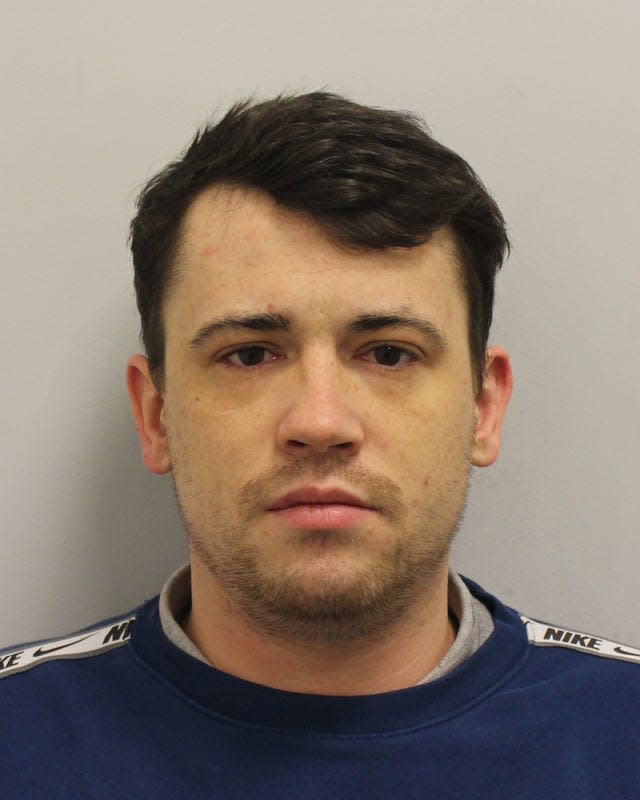Zara Aleena’s family ‘tortured with thought her death was preventable’ – inquest
Zara Aleena’s family is “tortured” with the thought that her “death was preventable”, an inquest has heard.
Jordan McSweeney killed the 35-year-old law graduate as she walked home from a night out in Ilford, east London, early on June 26 2022.
McSweeney was handed a life sentence with a minimum term of 38 years at the Old Bailey in December 2022 after admitting Ms Aleena’s murder and sexual assault.
In November 2023, he won a Court of Appeal bid to reduce the minimum term of his life sentence.

Ms Aleena’s aunt, Farah Naz, told the jury at East London Coroner’s Court in Walthamstow on Monday that the family is “tortured by thoughts that her death was preventable and that our state system that we entrusted failed our Zara, failed us”.
She added that her niece’s murder highlighted “the crumbling justice system that is meant to protect all of us, especially women and girls”.
Ms Naz said: “Since her death we have been campaigning so that our daughters, sisters, friends can be safe and protected as Zara never was. This is Zara’s legacy.”
In a pen portrait, Ms Naz became emotional as she told the jury of her niece’s “sparkling eyes and curly jet black hair” and “glorious laughter”.
Ms Naz said Ms Aleena was a carer for her mother and grandmother, “the rock of our family” and it was the “proudest moment for all of us” when she was offered a job as a legal assistant at the Royal Courts of Justice.
She described her niece as “a carefree spirit with the most caring heart” and said she had worked to help resettle refugees in the UK.
Ms Naz said: “2022 was to be her year to live her wildest dreams. She wanted to buy her own home, find Mr Right and to have children. The future looked bright.”
She added: “One of the things she used to confidently say is ‘I know I’m a good person’.
“If she were able to speak here today she would say ‘I didn’t do anything wrong’.”

Ms Naz said Ms Aleena “wasn’t just surviving, she was thriving”, adding: “Zara walked everywhere and one night she walked home from an evening out with a friend, she was sexually assaulted and murdered. She was 35 years old.
“She believed that a woman should be allowed to walk home, and her dreams, her future was brutally taken.”
McSweeney had been released from prison on licence on June 17 2022 and, after breaching the conditions of his licence, a decision was made to recall him to prison on June 24 2022.
On Monday, area coroner Nadia Persaud said the purpose of the inquest is to “consider the circumstance by which Zara came by her death, which will include whether any actions or omissions of state bodies contributed to her death”.
The jury was told that McSweeney was 29 at the time of the attack and had received his first custodial sentence at the age of 13, with much of his adult years spent in prison or in the community under licence.
Kim Thornden-Edwards, chief probation officer for England and Wales, said during her evidence the Probation Service accepts that McSweeney should have been considered as high risk from 2021.
Put to her by the coroner that it was considered McSweeney’s risk should have been high from 2021, Ms Thornden-Edwards said: “I don’t have an issue with HMIP’s assessment that at the time Jordan McSweeney was high risk.
“What I would say is that the assessment of Jordan McSweeney has some complexities and nuances to it.”
She added: “The majority of his offending history is acquisitive, burglaries and thefts.”
She said the threshold between medium and high risk is “one of the most challenging”.
Asked if he could have been placed in approved premises if he was considered as high risk, Ms Thornden-Edwards said: “They take the most serious offenders that you have and their bed spaces are very much in demand, they will house our critical public protection cases, they will also house terrorist offenders, even if Jordan McSweeney had been assessed as high risk, I do not think he would’ve hit the bar comparatively in terms of the people we do house in approved premises.”
She added that people cannot be given an electronic monitoring tag without an address, but said had McSweeney had accommodation it “should’ve been a consideration”.
Ms Persaud, reading a statement from a consultant forensic pathologist, said the cause of Ms Aleena’s death was blunt force head injury and neck compression.
The inquest continues.



